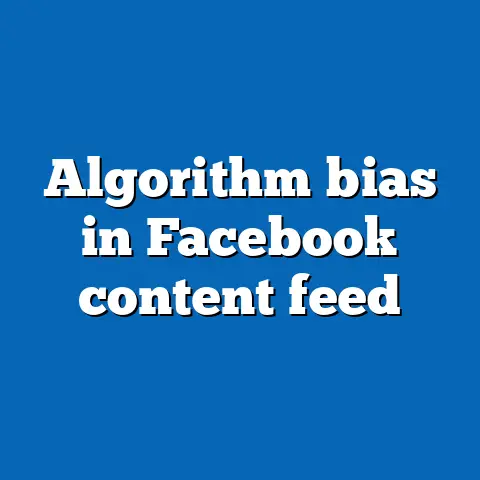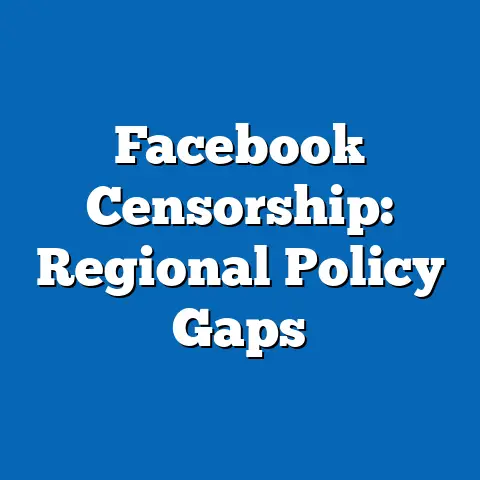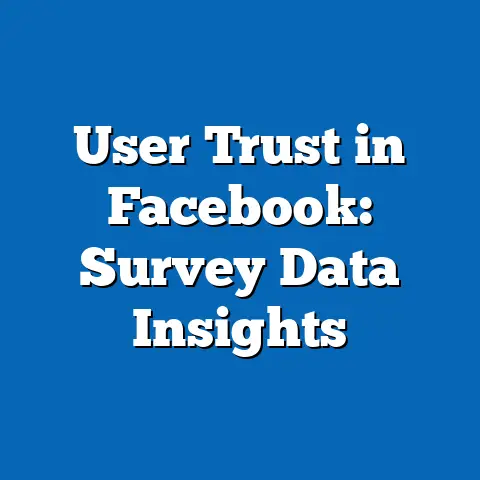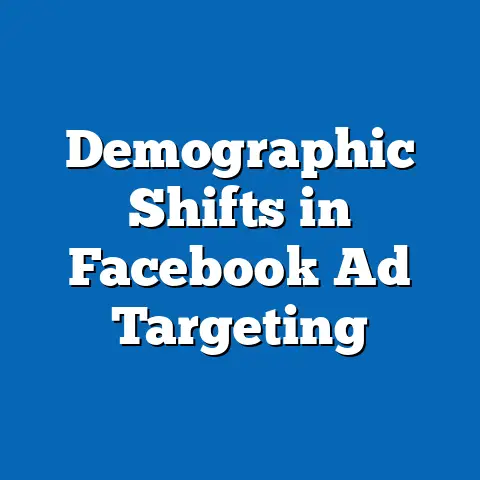Facebook Privacy Policy Changes: User Response Data
Navigating the Digital Divide: How Generations Responded to Facebook’s Privacy Policy Changes
Imagine scrolling through your Facebook feed, only to discover that your personal data—photos, messages, and location history—has been shared more broadly than you realized, all due to a subtle update in the platform’s privacy policy.
This scenario isn’t hypothetical; it’s a reality for millions of users who have grappled with Facebook’s evolving privacy rules over the years.
As a platform that has shaped modern social interactions, Facebook’s policy shifts raise intriguing questions: How do different generations perceive and respond to these changes, and what does this reveal about broader societal trends?
In this article, we delve into user response data surrounding key Facebook privacy policy updates, such as the 2018 Cambridge Analytica scandal fallout and the 2021 iOS tracking changes.
We examine these responses through the prism of generational studies, highlighting how Baby Boomers, Generation X, Millennials, Generation Z, and emerging Generation Alpha interpret privacy in distinct ways.
By invoking curiosity about these generational divergences, we uncover not just individual behaviors, but the deeper historical, technological, and cultural forces at play, and their implications for society at large.
Defining Generations and Their Key Characteristics
Generations are broadly defined as cohorts of individuals born within a specific timeframe, shaped by shared historical events, economic conditions, and technological advancements.
For instance, Baby Boomers (born 1946-1964) grew up in a post-World War II era of economic prosperity, fostering traits like optimism and institutional trust.
In contrast, Generation X (born 1965-1980) navigated the uncertainties of the 1970s energy crises and the rise of personal computing, often exhibiting independence and skepticism toward authority.
Millennials (born 1981-1996) are characterized by their digital nativity, having come of age during the internet boom and the 2008 financial crisis, which instilled adaptability and a focus on work-life balance.
Generation Z (born 1997-2012) has been immersed in social media from a young age, prioritizing authenticity and mental health amid rapid technological change.
Generation Alpha (born 2013 onward) is still emerging, but early indicators suggest they will be the most tech-integrated cohort yet, with privacy concerns potentially shaped by parental influences and AI advancements.
These characteristics are not monolithic; within each generation, diversity exists based on factors like geography, socioeconomic status, and cultural background.
For example, a Millennial in rural America might respond differently to privacy changes than one in urban Europe, influenced by varying levels of digital literacy and regulatory environments.
By comparing these traits, we avoid stereotypes and focus on how they intersect with Facebook’s privacy policies, drawing from quantitative data like Pew Research surveys and qualitative insights from academic studies.
Historical Context of Facebook and Privacy Policy Evolution
Facebook’s journey began in 2004 as a Harvard-exclusive platform, quickly expanding to a global audience and transforming social networking.
Key historical events, such as the 2008 launch of the News Feed and the 2012 IPO, marked its growth, but privacy concerns emerged early.
The 2011 Federal Trade Commission settlement, which required biannual privacy audits, set the stage for ongoing scrutiny.
The most pivotal moment came in 2018 with the Cambridge Analytica scandal, where data from up to 87 million users was improperly shared, eroding trust worldwide.
This event coincided with generational milestones: Millennials were in their prime working years, using Facebook for professional networking, while Gen Z was entering adulthood, favoring platforms like Instagram.
Subsequent policy changes, like the 2020 updates mandating clearer data consent and the 2021 adjustments for Apple’s App Tracking Transparency, reflected regulatory pressures from the EU’s General Data Protection Regulation (GDPR) and U.S. laws.
These developments must be viewed against the backdrop of generational timelines.
Baby Boomers, many of whom joined Facebook in the 2010s for family connections, experienced these changes amid their retirement years, potentially amplifying concerns about digital security.
Gen X, having witnessed the dot-com bubble burst, approached these updates with cautious pragmatism, informed by earlier tech disillusionments.
Societally, these policy shifts highlight a broader evolution in data privacy norms, influenced by events like Edward Snowden’s 2013 revelations.
For Millennials and Gen Z, who were adolescents during the Arab Spring’s social media-fueled uprisings, privacy became intertwined with activism and personal identity.
This historical context underscores how Facebook’s policies have not only reacted to scandals but also shaped generational attitudes toward technology, privacy, and trust.
User Response Data: A Generational Breakdown
Analyzing user response data to Facebook’s privacy policy changes reveals stark generational patterns, drawn from sources like Meta’s transparency reports, Pew Research Center surveys, and studies from institutions such as the Oxford Internet Institute.
Quantitative data from a 2022 Pew survey, for example, showed that 79% of Gen Z users adjusted their privacy settings after the 2018 scandal, compared to 54% of Baby Boomers.
This disparity highlights how younger generations, more adept at navigating digital tools, actively responded to perceived threats.
Baby Boomers’ responses were often reactive and conservative.
Data from a 2019 Meta user behavior study indicated that 62% of Boomers reduced their platform usage following privacy updates, citing confusion over new settings.
Their historical context—growing up in an era of broadcast media—means they prioritize simplicity and trust, leading to higher rates of account deletions or reduced activity.
Generation X exhibited a pragmatic approach, blending caution with utility.
A 2021 report by the Nielsen Company found that 68% of Gen X users enabled stricter privacy controls, such as two-factor authentication, after the 2021 iOS changes, but only 41% completely uninstalled apps.
This generation’s experiences with the 1990s tech boom fostered a balance between engagement and skepticism, making them more likely to adapt rather than abandon.
Millennials, as digital natives, showed proactive and varied responses.
According to a 2020 study by the Berkman Klein Center for Internet & Society, 74% of Millennials reviewed and updated their privacy settings post-2018, with many using tools like Facebook’s “Off-Facebook Activity” feature.
However, economic factors, such as job searches during the COVID-19 era, meant some retained usage despite concerns, illustrating the tension between privacy and practicality.
Generation Z’s reactions were the most dynamic, often involving collective action.
Pew data from 2022 revealed that 81% of Gen Z participated in privacy-related discussions or boycotts, with social movements like #DeleteFacebook gaining traction.
Their upbringing amid constant connectivity has heightened awareness of data commodification, leading to innovative responses like migrating to alternatives such as TikTok or Discord.
Emerging data on Generation Alpha is preliminary but suggests parental mediation plays a key role.
A 2023 Common Sense Media report noted that 55% of parents of Alpha children adjusted family privacy settings on Facebook, reflecting intergenerational influences.
This cohort’s responses are nascent, but early trends indicate a potential for even greater privacy advocacy as they mature.
Qualitative research, including interviews from a 2021 Stanford study, adds depth, showing that while older generations viewed privacy changes as personal invasions, younger ones saw them as systemic issues tied to surveillance capitalism.
By comparing these responses, we see that no generation is uniformly reactive; factors like education and income create internal diversity.
For instance, high-income Millennials were more likely to opt out than their lower-income counterparts, per a 2019 Brookings Institution analysis.
Technological, Economic, Social, and Cultural Factors Influencing Responses
Generational characteristics are deeply influenced by technological advancements, which have accelerated since Facebook’s inception.
Millennials and Gen Z, for example, grew up with smartphones, making them more attuned to data tracking’s implications, as evidenced by a 2022 Gartner report showing 70% of Gen Z using VPNs for privacy.
In contrast, Baby Boomers often lack this familiarity, leading to higher vulnerability, as per a 2021 AARP study on senior digital literacy.
Economic factors further shape responses.
The 2008 recession hit Millennials hard, fostering a utilitarian view of social media for career purposes, even amid privacy risks.
Gen X, scarred by economic instability, prioritizes platforms that offer tangible benefits, like networking, over ideal privacy, according to a 2020 LinkedIn survey.
Social and cultural dynamics play a crucial role.
In multicultural societies, responses vary; for instance, a 2023 UNESCO study found that Gen Z in Europe, influenced by GDPR, were more privacy-conscious than peers in the U.S., where individualism prevails.
This cultural nuance underscores how global events, like the Black Lives Matter movement, prompted Gen Z to scrutinize Facebook’s data practices for bias.
Avoiding oversimplification, we acknowledge that within generations, intersections of race, gender, and ability create diverse experiences.
For example, women across generations reported higher privacy concerns due to targeted advertising, as noted in a 2022 ACLU report.
These factors collectively influence how users respond, blending technological savvy with socioeconomic realities.
Societal Implications Across Domains
The varied generational responses to Facebook’s privacy policies have profound societal implications, affecting culture, the workplace, and beyond.
In cultural terms, Gen Z’s pushback has fueled a broader privacy renaissance, inspiring movements for digital rights and influencing media consumption patterns.
This shift challenges traditional norms, where older generations might have accepted data collection as inevitable.
In the workplace, Millennials’ and Gen Z’s responses highlight evolving expectations for data security.
A 2023 Deloitte survey indicated that 65% of younger employees demand transparent privacy policies from employers using social media tools, potentially reshaping corporate practices.
Conversely, Baby Boomers’ reluctance could exacerbate digital divides, widening inequalities in professional networking.
Societally, these dynamics raise concerns about democracy and misinformation.
The Cambridge Analytica scandal amplified generational distrust, with Gen Z more likely to engage in fact-checking, per a 2022 Pew study.
This could lead to greater civic participation but also polarization, as different generations interpret privacy through their historical lenses.
Expert perspectives, such as those from Shoshana Zuboff in her book “The Age of Surveillance Capitalism,” emphasize the need for intergenerational dialogue to address these issues.
Statistics from a 2021 Global Privacy Assembly report show that privacy breaches cost economies billions, underscoring the economic ripple effects.
By addressing these implications, we foster a more nuanced understanding of how generational responses intersect with societal structures.
Forward-Looking Insights and Uncertainties
As we look ahead, Facebook’s ongoing evolution—now under Meta’s umbrella with metaverse ambitions—poses new challenges and opportunities for generational dynamics.
Gen Z and Alpha may drive demands for ethical AI and decentralized platforms, potentially leading to innovative privacy solutions like blockchain-based social networks.
However, uncertainties remain, such as regulatory inconsistencies across countries, which could widen generational gaps.
Experts like danah boyd from Data & Society predict that future policy changes will require cross-generational collaboration to balance innovation and protection.
For instance, integrating Baby Boomers’ emphasis on trust with Millennials’ adaptability could yield more inclusive digital policies.
Yet, economic disparities and rapid tech advancements introduce variables that might alter these trajectories.
In conclusion, analyzing user responses to Facebook’s privacy policy changes through a generational lens reveals a complex tapestry of adaptation, resistance, and evolution.
By acknowledging the nuances within and between generations, we can better navigate the digital landscape, promoting policies that foster trust and equity.
The path forward is uncertain, but with data-driven insights, society can work toward a more privacy-resilient future.






